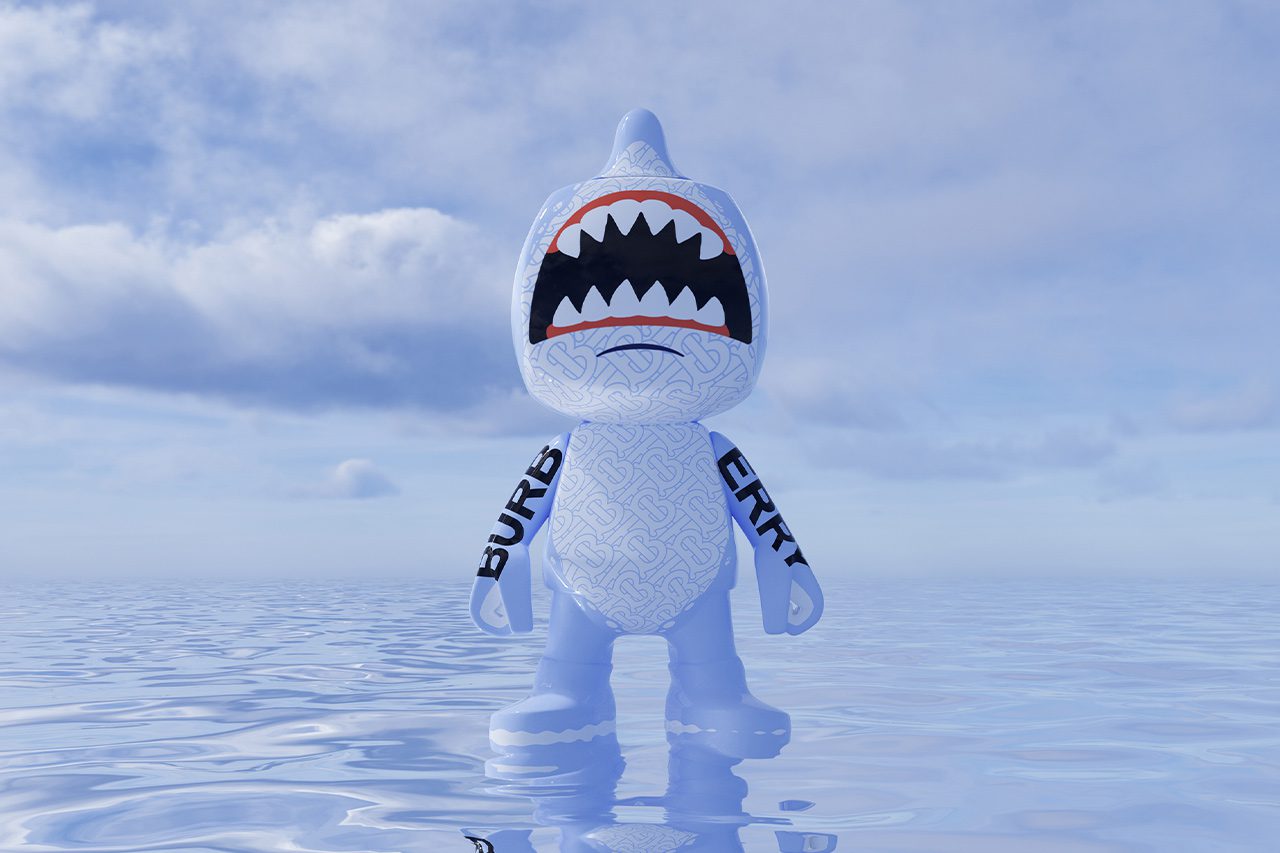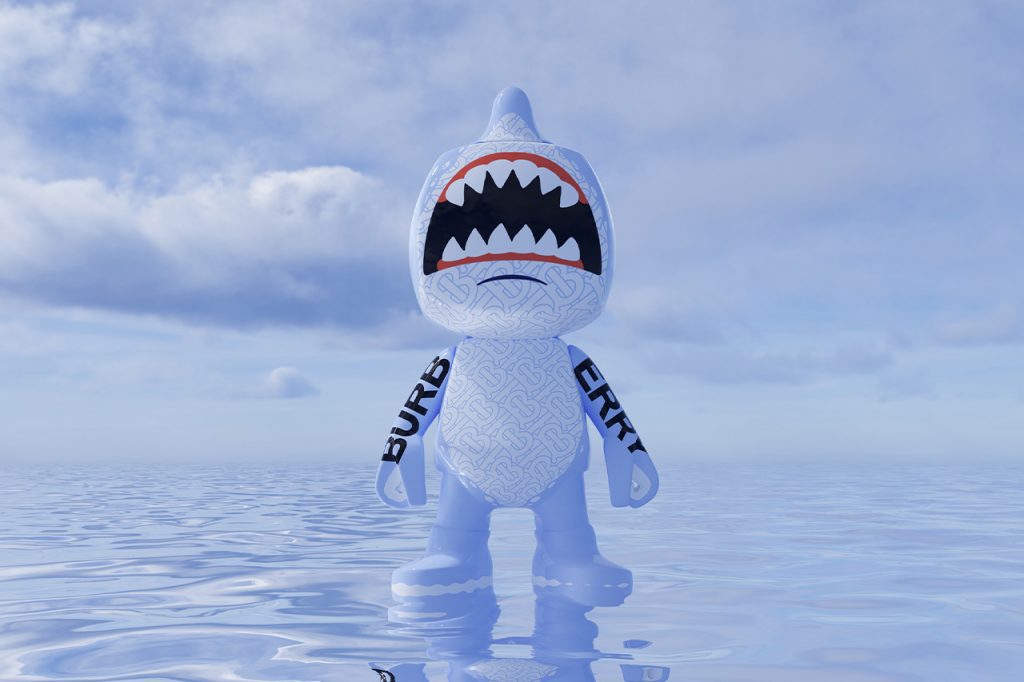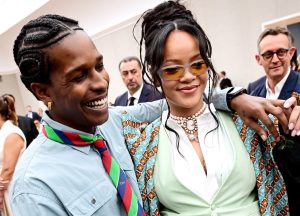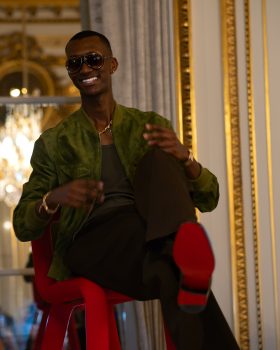
Burberry ‘Blankos Block Party’
The luxury fashion segment has certainly taken notice of the potential the metaverse holds and is tentatively exploring the space. Gamers already have a history of using apparel and accessories to establish their virtual identities. In 2021, Gucci released a fashion film as an NFT through Christie’s titled ‘Proof Of Sovereignty: A Curated NFT Sale by Lady PheOnix’ which sold for $25,000. Louis Vuitton’s ‘Louis: The Game’, a gaming experience with ten NFTs by Beeple. In ‘NikeLand’ in the Roblox Metaverse, fans can connect, create their own mini games, compete and share experiences. Burberry partnered with Mythical Games to release a game titled ‘Blankos Block Party’ which also houses limited edition NFTs by Burberry.
”Avatars will be as common as profile pictures today, but instead of a static image, they’re going to be living 3D representations of you, your expressions, your gestures that are going to make interactions much richer,” Meta CEO Mark Zuckerberg tells Forbes. ”You’ll probably have a photo realistic avatar for work, a stylised one for hanging out … you’re going to have a wardrobe of virtual clothes for different occasions designed by different creators and from different apps and experiences.”
Luxury fashion brands are taking the trend seriously and moving quickly to capitalise on the opportunity to sell virtual versions of their products to people in the metaverse. So, which top fashion brands are in the metaverse space? Examples include Gucci’s limited collection of handbags on Roblox where a bag sold for reportedly $4,000; NFTs of characters in Burberry’s ‘Blankos Block Party’ wore accessories that sold out for an estimated $400,000. Balmain worked with gaming platform Altava to offer a limited collection. Prada forayed into the metaverse with a user-generated, creator-owned art project in alliance with Adidas. Dolce and Gabbana sold its nine-piece ‘Collezione Genesi’ collection on digital luxury marketplace UNXD for around 5.7 million dollars…
”Everything is experimental right now,” Ian Rogers, chief experience officer of Ledger and former chief digital officer of LVMH, told Forbes. ”We’re in the gold rush period where anything goes, but it”s evolving very quickly. It”s a brave new world we have not lived in.”
NFTs and the Metaverse are proving to be a powerful and multi-faceted tool to achieve brand objectives and incremental revenue streams. However, while there is considerable activity with luxury fashion brands stepping into the metaverse, these initiatives are not a big revenue driver. With caution being the operative word, several brands are collaborating with creative agencies to digitize their collections. For example, Puma has allied with The Fabricant and Gucci with GEEIQ.
”The industry has changed. Whereas back in 2000, naysayers were saying e-commerce could never be a luxury experience, today there is a deeper understanding that digital can lead to enhanced client experiences. When it comes to NFTs, it’s going to require a lot more time to understand what they can represent in terms of customer experience or value-add. But you’ve seen a significant number of brands within the sector saying, okay, we believe that NFTs have relevance, we’re not a hundred percent sure yet what that relevance is but we’re going to pilot this, we’re going to experiment, and have some learnings and insights as a result,” Robert Triefus, EVP Brand and Customer Engagement, Gucci told Forbes.
While the metaverse is relatively new, it is clear that fashion will be a part of its future. Fashion NFTs snapped up today perhaps do not offer real utility but the day isn’t far when people will view digital garments and accessories as much a reflection of their personality as their physical closet. And this is where top fashion brands will vie for a piece of the metaverse pie.
Read More:
what is the sandwich method in fashion
what is the fashion capital of the world
Jasmeen Dugal is Associate Editor at FashionABC, contributing her insights on fashion, technology, and sustainability. She brings with herself more than two decades of editorial experience, working for national newspapers and luxury magazines in India.
Jasmeen Dugal has worked with exchange4media as a senior writer contributing articles on the country’s advertising and marketing movements, and then with Condenast India as Net Editor where she helmed Vogue India’s official website in terms of design, layout and daily content. Besides this, she is also an entrepreneur running her own luxury portal, Explosivefashion, which highlights the latest in luxury fashion and hospitality.










